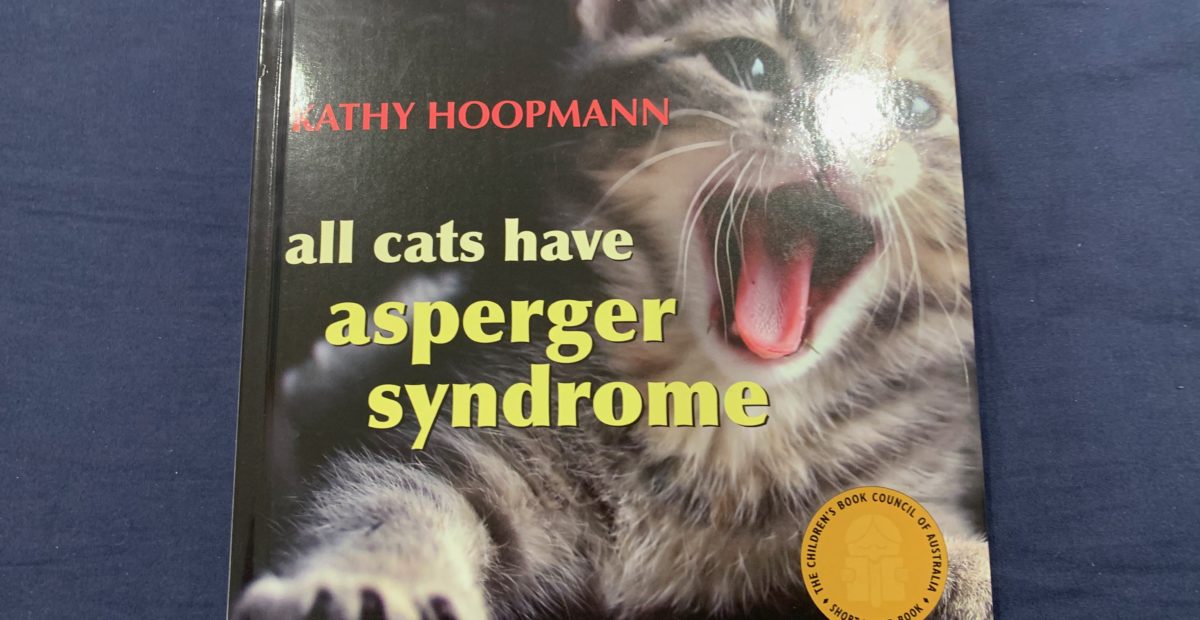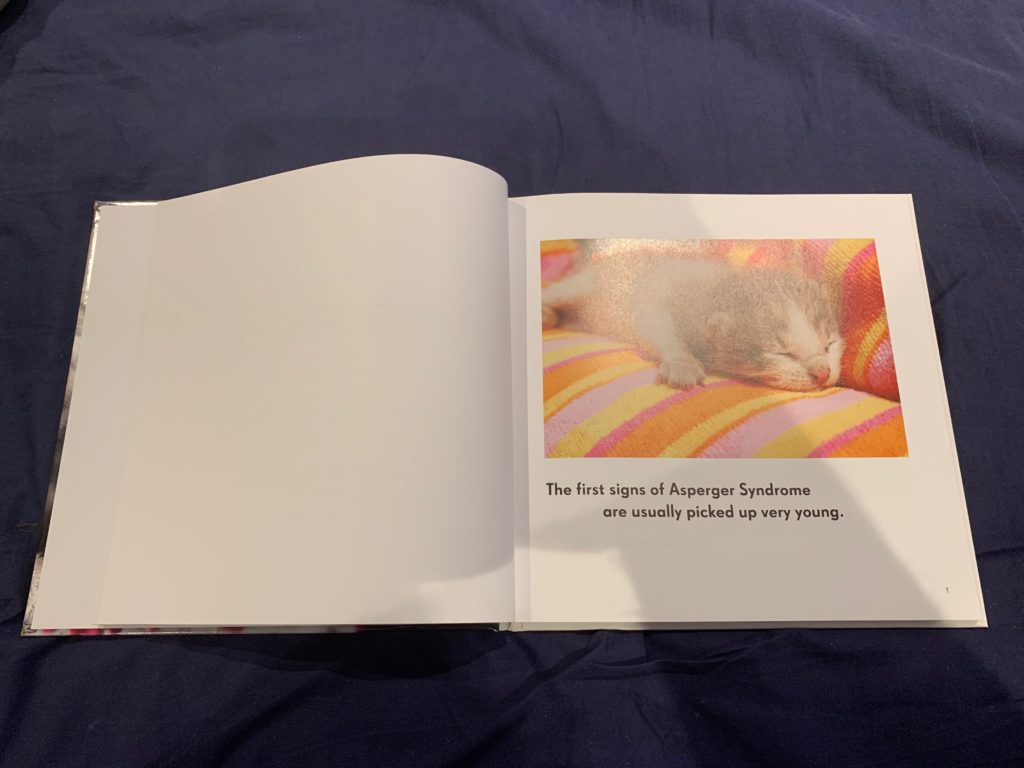Book Review: All Cats Have Asperger Syndrome

Blog post updated on 18th May 2022.
All photography in this post is by April Slocombe.
Introduction
‘All Cats Have Asperger Syndrome’ (note: an updated version of this book called ‘All Cats Are on the Autism Spectrum‘ is now available) is a book that was written by Kathy Hoopmann, who also wrote ‘All Dogs Have ADHD.’ She wrote it to educate children and their families on Asperger syndrome, which is a form of autism. Like with ‘All Dogs Have ADHD,’ ‘All Cats Have Asperger Syndrome’ uses some stock photographs that are from Shutterstock, whereas most of them are from Dreamstime.com.

The book begins with a sentence that says, “The first signs of Asperger Syndrome are usually picked up very young.” Contrary to this, Asperger syndrome is often not diagnosed until later in life.
Social Traits of Asperger Syndrome that the Book Mentions

- Not being interested in doing things that peers do.
- Not knowing how to mix or mingle with others.
- Finding it hard to make friends.
- Becoming fascinated by something for a long time.
- Doing the same thing repeatedly “without getting bored.”
- Having a tantrum or a meltdown “when things get too much.”
- Getting “little words mixed up.”
- Misunderstanding what people say, such as expressions.
- Refusing eye contact.
- Talking about the same topic over time.
- Becoming “worried if the schedule is changed.”
- Having “a great sense of humour,” but not always thinking about what they are saying. For example, a person with Asperger syndrome may say, “Look at that fat man with the big nose!” and think they’re being funny, but others think they are being rude.
- Being honest if sometimes too honest. For example, a person with Asperger syndrome might say, “Your face is all crinkly when you’re mad, Mum!” and their mother may feel offended.
- Trying to tell a lie, but not being good at it.
- Feeling as if they belong “on another planet” or like an outsider.
- Not understanding the concept of following trends.
Physical and Sensory Traits
- Not wanting to be held by others.
- Sensitivity to sound, touch and smell.
Miscellaneous Traits
- Becoming overly attached to a particular object such as a toy.
- Having “no sense of danger.”
- Using things up too quickly.
- Being a fussy eater.
- Wanting things to be consistent.
- Having “daily rituals” and “a good routine.”
Strengths of Asperger Syndrome and Autism
- Looking at the world in a unique way.
- Being “very open to all people, regardless of age, or size, or species.”
- Having a good “eye for detail.”
- Having “amazing powers of concentration.”
- Reciting facts and information.
- Having a “bright, intelligent mind.”
- Inventing “new ways to do old things.”
- Having a very advanced vocabulary.
Additional Message about People with Asperger Syndrome or Autism

There is a message that says all people with autism or Asperger syndrome are different, but “there is a little bit of Asperger in us all.” People who are neurotypical can also become overwhelmed like people with autism or Asperger syndrome can as stated by our content volunteer April Slocombe in her own blog.
Conclusion
‘All Cats with Asperger Syndrome’ is just as educational and informative as ‘All Dogs Have ADHD’ is. While its pros include adorable photographs of cats throughout and text that is easy to read, its cons include its sole focus on Asperger syndrome rather than ASD as a whole; its main emphasis on children rather than both children and adults; and the cat being likened to a person with autism or Asperger syndrome being referred to as “he” probably because autism and Asperger syndrome are more common in males than females. Unlike ‘All Dogs Have ADHD,’ this book doesn’t mention famous people or historical figures who have had autism or Asperger syndrome or were believed to have had them.




